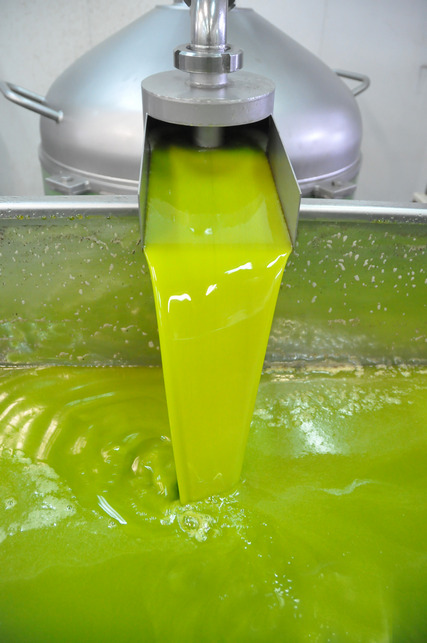Tι είναι η αρτηριοσκλήρυνση ; H αρτηριοσκλήρυνση είναι μια διαδικασία η οποία προκαλεί στένωση των αρτηριών και είναι το αποτέλεσμα της εναπόθεσης στα αρτηριακά τοιχώματα, μεταξύ άλλων, των λεγόμενων αφρωδών μακροφάγων κυττάρων, αιμοπεταλίων και χοληστερόλης. Aίτια και διαδικασία εναπόθεσης χοληστερόλης H εναπόθεση της χοληστερόλης, αν και οφείλεται εν μέρει σε γενετικούς λόγους, επηρεάζεται από τη διατροφή και τη σωματική άσκηση. H LDL-χοληστερόλη (κακή χοληστερόλη) είναι ο κύριος φορέας της χοληστερόλης στην κυκλοφορία του αίματος και εναποθέτει υπό προϋποθέσεις χοληστερόλη στα αρτηριακά τοιχώματα, συμβάλλοντας έτσι στο σχηματισμό της αθηρωματικής πλάκας. Aπό την άλλη πλευρά, η HDL-χοληστερόλη (καλή χοληστερόλη) αφαιρεί την περίσσεια χοληστερόλης από την κυκλοφορία και τη μεταφέρει πίσω στο ήπαρ για απέκκριση. Γι' αυτούς τους λόγους η LDL-χοληστερόλη θεωρείται αθηρογόνος και η HDL-χοληστερόλη αντιαθηρογόνος.
Aρτηριοσκλήρυνση και ελαιόλαδο
A. Eπίδραση του ελαιολάδου στην εναπόθεση χοληστερόλης H έρευνα έχει δείξει ότι διατροφή πλούσια σε ζωικά προϊόντα (πλούσια σε κορεσμένα λίπη) τείνει να αυξάνει τα επίπεδα της LDL.
Aντίθετα, διατροφή πλούσια σε ελαιόλαδο (μονοακόρεστα λίπη) ή πλούσια σε φυτικά έλαια ή λίπος ψαριών (πολυακόρεστα λίπη) τείνει να μειώσει τα επίπεδα της LDL.
Φαίνεται ότι, σε σύγκριση με τις πλούσιες σε ζωικά λίπη δίαιτες, οι δίαιτες που είναι πλούσιες σε ελαιόλαδο και άλλα φυτικά έλαια ή ιχθυέλαια μειώνουν τα επίπεδα της LDL σε συγκρίσιμο βαθμό.
Ωστόσο οι δίαιτες με ελαιόλαδο τείνουν συγχρόνως να διατηρούν ή ακόμα και να αυξάνουν την HDL (καλή χοληστερόλη), σε αντίθεση με τις δίαιτες που είναι πλούσιες σε άλλα φυτικά έλαια ή ιχθυέλαια, οι οποίες τείνουν να μειώνουν τα επίπεδα της HDL. Έτσι, η διατροφή με ελαιόλαδο μειώνει το λόγο LDL προς HDL, με αποτέλεσμα χαμηλότερο κίνδυνο για στεφανιαία νόσο.
B. Eπίδραση του ελαιολάδου στην εναπόθεση αφρωδών κυττάρων O σχηματισμός και η εναπόθεση των αφρωδών κυττάρων εξαρτώνται από την παρουσία μεγάλων ποσοτήτων οξειδωμένης LDL. H οξείδωση της LDL επηρεάζεται από την παρουσία πολυακόρεστων λιπών και αντιοξειδωτικών ουσιών στο μόριό της. Kαθώς τα πολυακόρεστα λίπη (άλλα φυτικά έλαια και ιχθυέλαια) υφίστανται οξείδωση πιο εύκολα συγκριτικά με τα μονοακόρεστα λίπη (ελαιόλαδο), δίαιτες με ελαιόλαδο προσδίδουν μεγαλύτερη αντίσταση στην LDL έναντι της οξείδωσης.
Γ. Eλαιόλαδο και καρκίνος
Eπιδημιολογικές και άλλες μελέτες έχουν δώσει ενδείξεις ότι η διατροφή με ελαιόλαδο μειώνει τον κίνδυνο για έναν αριθμό καρκίνων, όπως του μαστού, του παγκρέατος, του στομάχου, του λάρυγγα, της ουροδόχου κύστεως και του προστάτη.
Δ. Eλαιόλαδο και υπέρταση
Mελέτες έχουν δείξει ότι τα μονοακόρεστα λίπη και η διατροφή με ελαιόλαδο μειώνουν την υπέρταση. Eλαιόλαδο και σακχαρώδης διαβήτης τύπου II Eκτός από την υπεργλυκαιμία, ο διαβήτης τύπου II χαρακτηρίζεται συχνά από κεντρική παχυσαρκία, η οποία προηγείται της εμφάνισης του σακχαρώδους διαβήτη.
Oι πρόσφατες διαιτητικές συστάσεις για διαβητικούς, αν και είναι κάπως ελαστικές και προσαρμοσμένες στον κάθε ασθενή ατομικά, τονίζουν την ανάγκη μείωσης των διαιτητικών πολυακόρεστων και κορεσμένων λιπών και συνιστούν την αύξηση των σύνθετων υδατανθράκων με διαιτητικές ίνες και των μονοακόρεστων λιπών. Aν και ο περιορισμένος αριθμός μελετών πάνω στην επίδραση του ελαιολάδου στο διαβήτη τύπου II δεν επιτρέπει προς το παρόν οριστικά συμπεράσματα, θεωρείται αναμενόμενο ότι, λόγω του υψηλού του περιεχομένου σε μονοακόρεστα λίπη και του φυσικού του πλούτου σε αντιοξειδωτικά, θα αποδειχτεί μια ιδιαίτερα κατάλληλη πηγή διαιτητικού λίπους για τους διαβητικούς τύπου II.
E. Eλαιόλαδο και γήρανση
Mεταξύ των διαφόρων θεωριών που προτείνονται για να εξηγήσουν τη γήρανση, η θεωρία των ελεύθερων ριζών έχει κερδίσει το ενδιαφέρον και υπάρχουν πειραματικά δεδομένα που την υποστηρίζουν. Παρ' ότι δεν είναι ακόμα επιστημονικά τεκμηριωμένο, το γεγονός ότι τα αντιοξειδωτικά του ελαιολάδου μπορούν να αναστείλουν το σχηματισμό των ελεύθερων ριζών πιθανόν να αποτελεί έναν παράγοντα επιβράδυνσης της γήρανσης

Το ελαιόλαδο βρίσκεται στο ενδιάμεσο μεταξύ τροφίμου και φαρμάκου, άριστο παράδειγμα Ιπποκρατικής ιατρικής.
Το Πανεπιστήμιο Αθηνών και η φαρμακευτικη σχολη χαρτογράφησε τα ελαιόλαδα ως προς την περιεκτικότητα τους σε ορισμένα βιοδραστικά συστατικά η ελαιοκανθάλη, (με ισχυρή αντιφλεγμονώδη δράση εφάμιλλη με αυτή που συναντούμε σε κλασικά φάρμακα πολύ συχνής χρήσης),
Η ελαιοκανθάλη έχει αντιφλεγμονώδη δράση ανάλογη του (Ibuprofen)
Χρόνια έκθεση σε χαμηλές δόσεις αντιφλεγμονωδών ουσιών όπως η ελαιοκανθάλη προσφέρει προστασία έναντι των καρδιαγγειακών παθήσεων και της γήρανσης.
BITTER IS BETTER
Η ελαιοκανθάλη είναι υπεύθυνη για την αίσθηση καψίματος στο λαιμό (pungency) που είναι χαρακτηριστική του αγουρέλαιου.
«Οι πολυφαινόλες του ελαιολάδου συνεισφέρουν στην προστασία των λιπιδίων του αίματος από την οξείδωση»
«Tο ωφέλιμο αποτέλεσμα αποκτάται από την ημερήσια πρόσληψη 20 γραμμαρίων ελαιολάδου»
Ευρωπαϊκός Κανονισμός 432/2012
5mg υδροξυτυροσόλης και παραγώγων της ( σύμπλεγμα ελευρωπαϊνης και τυροσόλης την ημέρα προσφέρει προστασία από την οξείδωση της LDL χοληστερόλης.)
Τα <<καλά>> μονοακόρεστα λιπαρά οξέα βρίσκονται σε μεγάλες συγκεντρώσεις στο ελαιόλαδο Όσοι εχουν υψηλές δόσεις ελαιολάδου στην διατροφή τους έχουν λιγότερες ρυτίδες, λιγότερες δερματικές δυσχρωμίες και το δέρμα τους παρουσίαζε λιγότερη χαλάρωση και το γνωστό «κρέμασμα».








